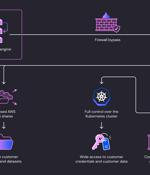Security News

The opportunities to use AI in workflow automation are many and varied, but one of the simplest ways to use AI to save time and enhance your organization's security posture is by building an automated SMS analysis service. Let's take a closer look at their SMS analysis workflow, which, like all of their pre-built workflows, is free to access and import, and can be used with a free Community Edition account.

In this Help Net Security interview, Saira Jesani, Executive Director of the Data & Trust Alliance, discusses the role of data provenance in AI trustworthiness and its impact on AI models' performance and reliability. Can you explain why data provenance is critical for AI trustworthiness and how it impacts AI models' overall performance and reliability?

The "AI Leaders Spill Their Secrets" webinar, hosted by Sigma Computing, featured prominent AI experts sharing their experiences and strategies for success in the AI industry. Audience Interaction and Future Trends# Panelists answered audience questions about the future of AI, emphasizing the role of accuracy, trust, and the balance between human decision-making and AI automation.

Cybersecurity researchers have uncovered security shortcomings in SAP AI Core cloud-based platform for creating and deploying predictive artificial intelligence workflows that could be exploited to get hold of access tokens and customer data. "The vulnerabilities we found could have allowed attackers to access customers' data and contaminate internal artifacts - spreading to related services and other customers' environments," security researcher Hillai Ben-Sasson said in a report shared with The Hacker News.

The company said it has decided to suspend the tools while it is in talks with Brazil's National Data Protection Authority to address the agency's concerns over its use of GenAI technology. The decision stems from "The imminent risk of serious and irreparable damage or difficult-to-repair damage to the fundamental rights of the affected data subjects," the agency said.

Aided by the emergence of generative artificial intelligence models, synthetic identity fraud has skyrocketed, and now accounts for a staggering 85% of all identity fraud cases. Anomaly detection algorithms analyze transaction data to flag irregularities indicative of synthetic identity fraud, continuously learning from new data and evolving fraud tactics to enhance effectiveness over time.

The complaint follows a similar protest in the European Union under the General Data Protection Regulation, which resulted in the social media biz agreeing to pause plans to train AI models on EU users' Facebook and Instagram users' posts. Although UK data protection law currently mirrors that in the EU, its decision to leave the economic and political bloc came into effect at the end of 2020.

This rings true; I've spoken with nearly 100 enterprise CISOs in the first half of 2024, and their primary concerns are how to get visibility over employee AI use, how to enforce corporate policies on acceptable AI use, and how to prevent loss of customer data, intellectual property, and other confidential information. How is AI acceptable use policy expressed? Consider an AI data access policy: a law or consulting firm might require that LLM data from client A can't be used to generate answers for client B. A public company's general counsel might want an AI topic access policy: employees outside of finance and below the VP level can't ask about earnings info.

Two House committee chairs have sent a public letter to the White House asking it to look into a deal between AI R&D outfit G42 and Microsoft. The missive [PDF] to National Security Adviser Jake Sullivan is authored by Reps Michael McCaul and John Moolenaar, respectively the chairs of the House Foreign Affairs Committee and the House Committee on Strategic Competition with the Chinese Communist Party.

The U.S. Department of Justice said it seized two internet domains and searched nearly 1,000 social media accounts that Russian threat actors allegedly used to covertly spread pro-Kremlin disinformation in the country and abroad on a large scale. "The social media bot farm used elements of AI to create fictitious social media profiles - often purporting to belong to individuals in the United States - which the operators then used to promote messages in support of Russian government objectives," the DoJ said.